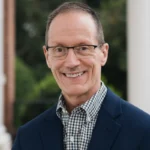This year has been a stressful one. It seems nothing is normal, and we don’t even know if there will be a new normal. COVID has affected so much of what we do as a church—including our celebrating the Christmas season. Here are some ways I suspect church will be different this year:
Fewer members will travel to be with family over the holidays. I know personally this decision is a difficult one, but many families will choose to stay at home this year. That decision will bring a unique grief to many—and, an opportunity to minister to them.
Outreach to members will be even more important this season. Some will be hurting because of the choice not to travel (#1 above). Others have personally dealt with COVID in the past nine months and grieve lost loved ones. Many are just COVID-weary and lonely. One of the best gifts we can give them this year is intentional attention.
Some congregations still not meeting in person (or, who decide to move online in the next few weeks) will celebrate Christmas together virtually. The reality of the influence of COVID may become most evident when churches don’t gather during both the Easter season and the Christmas season in 2020. That’s even hard to imagine.
Many traditional holiday church events will be postponed this season. Depending on the church, events like small group meals, holiday parties, Christmas musicals, and holiday banquets will not be on the calendar. Traditions will be disrupted.
Churches that are gathering may welcome back members who haven’t attended since COVID started. They won’t be, though, members who simply aren’t comfortable attending with a large crowd; they’ll be fringe members who fell out of the habit of attending. Christmas will remind them of their responsibility.
Churches will have to determine whether they plan to have a Christmas Eve service. For some congregations, the Christmas Eve service is a highlight of the year – both sacred and fun, well-attended and joyous. To not have the service this year will be painful.
Those churches that have a Christmas Eve service will likely require reservations. Spatial distancing and capacity limits will require more intentional planning than years past. Some churches will add services on Christmas Eve to provide sufficient space.
Some small group parties will be on Zoom. As a pastor, frankly, the large number of Christmas parties usually wears me out – but it’s still good to celebrate with the church. This year, we may find ourselves creatively celebrating through the Internet.
Congregations will have more opportunities to minister to hurting people in the community. The struggling economy has led to increased needs. People are hungry and hurting financially. Families are exhausted from home schooling. Even healthy relationships have been strained. The stress has resulted in despair for many. Now is the time to give greater attention to addressing these needs.
Pastors will be even more weary because of the season. This season is usually busy and hectic, but many of us come into this season already exhausted. We want to celebrate, but we’re tired.
Nevertheless, one truth remains the same this year: God has come to us. No matter what we face, we have that story to tell!




Comments and Pingbacks
2020-12-11 00:53:56
Herb Hartso
Such a good article Dr. Lawless! Right on point for pastors. -Herb Hartso